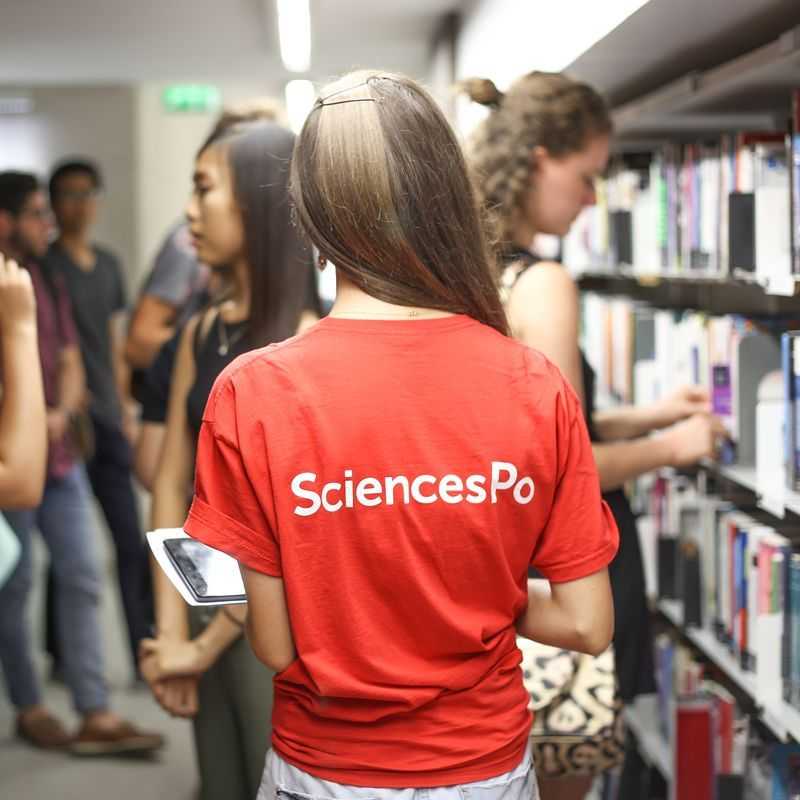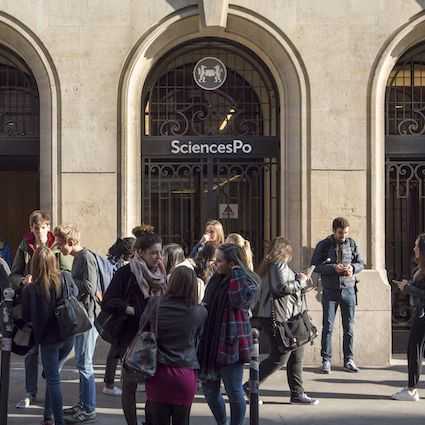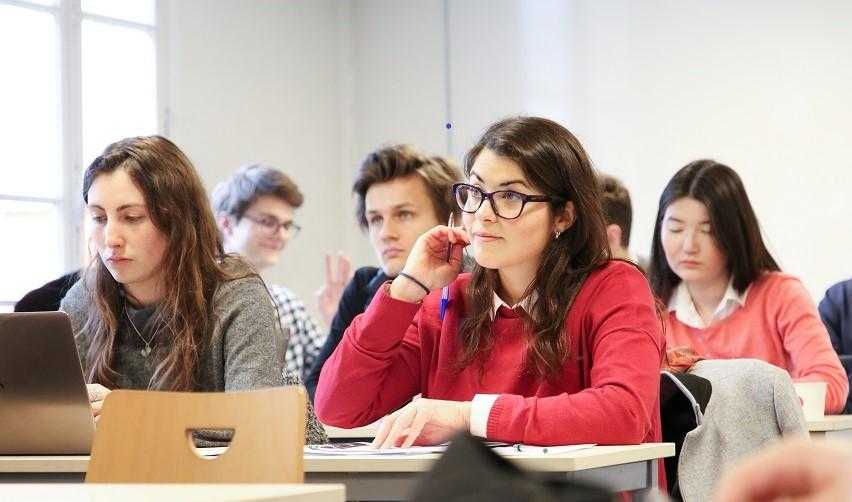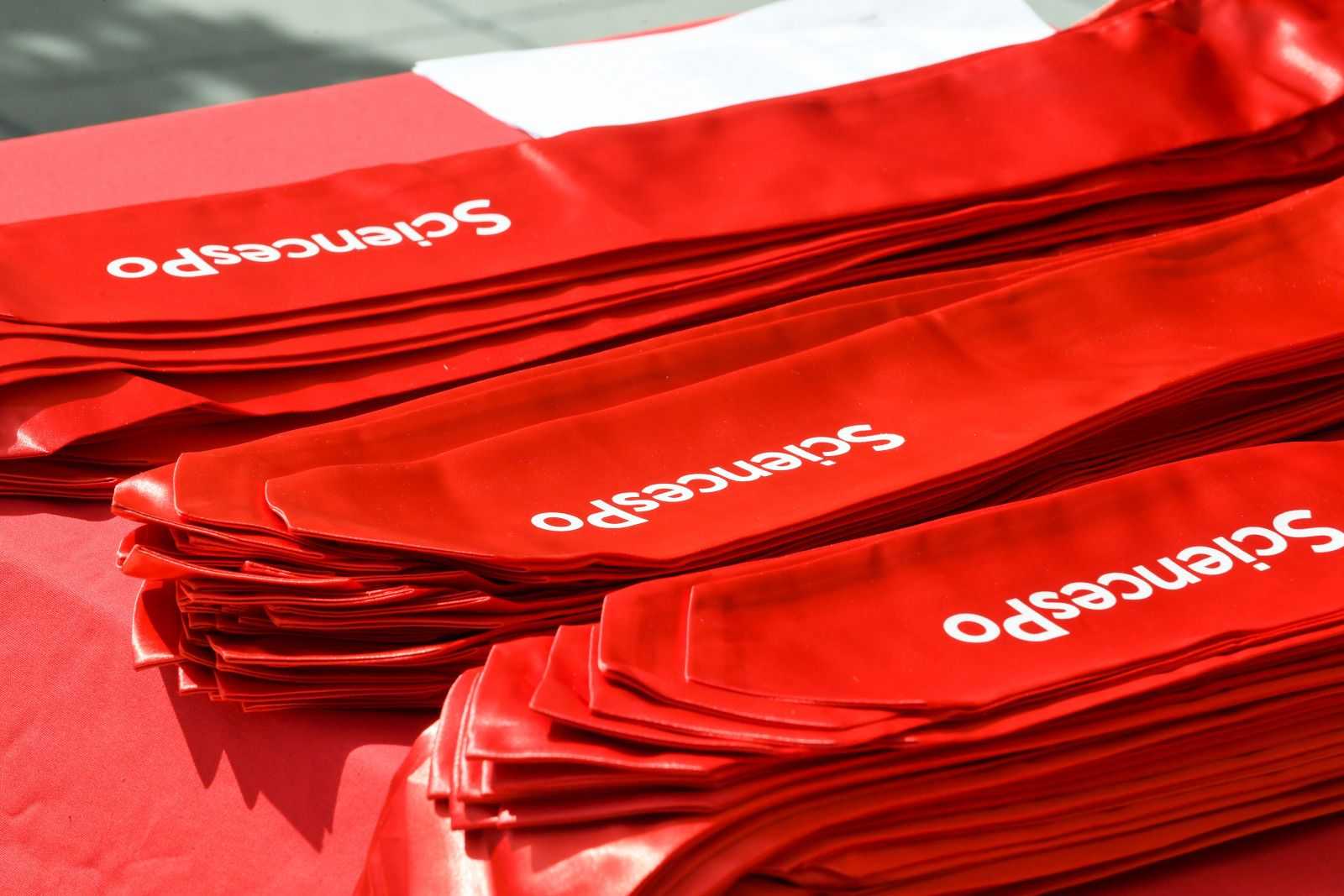
Home>Academics>Master's Programmes>Master in Political Science>Master in Political Science, Major in International Relations
Master in Political Science, Major in International Relations
Information Sessions: Masters

Discover all the Master's programs and admissions procedures during our many webinars and YouTube Live dedicated to future applicants.
"The political science of international relations is rooted in a tradition of multidisciplinary studies (history, geography, law, sociology, economics). It analyses international realities as social realities, at both the micro level of actors and the macro level of the groups they form. This integrated approach has a very long history at Sciences Po."
Presentation
The Masters in international relations offers a comprehensive overview of the major approaches to knowledge of international affairs (political science, history, law, economics, and geography), a closer examination of research questions that political science and international relations focus on (international organizations, multilateralism, foreign policy, global governance, new conflicts, peace studies), and an original socio-historical approach emphasizing the role of states, societies, cultures and non-state actors in the development of global policy.
Objectives
The program is specifically designed for students who plan to pursue academic careers (research and teaching), careers as experts in public or private international organizations, civil service entrance examinations (especially international and European ones), and diplomatic careers.
Skills targeted
The program offers excellent training in political science that provides the following skills: the ability to design and implement a research project, a command of research tools, an ability to communicate research results, and the development of critical and independent thinking.
Structure of the programme
The programme provides an overview of the major approaches to knowledge of international affairs (political science, history, law, economy, geography), a closer look at priority areas of research in the political science of international relations (international organizations, multilateralism, foreign policy, global governance, new conflicts, peace studies), and an original socio-historical approach emphasizing the role of States, society, culture and non-state actors in shaping global policy.
The first year of the master's degree (semesters 1 and 2) is dedicated to the study of the fundamentals of International Relations, and to a first introduction to reseach, especially through personal tutoring.
The second year of the master's degree (semester 3) builds on the first year through some specialised seminars and the continuation of a general research seminar started in the course of the first year. These classes aim at helping students to get prepared for their master thesis which will be the cornerstone of the second year of the master's degree. The entire semester 4 is dedicated to the master thesis.
Teaching staff
- Mélanie Albaret (FR, PDF, 37Ko), Senior lecturer in political science at the Law School, University of Auvergne, Clermont-Ferrand
- Thierry Balzacq, Professor of International Relations, Sciences Po, CERI
- Frédéric Charillon, University Professor, University of Auvergne, Clermont-Ferrand
- Ariel Colonomos, Director of Research, CNRS-CERI
- Jerome Doyon, Assistant Professor, Sciences Po, CERI
- Pierre Grosser Professor of Contemporary History, Doctor of History, Sciences Po
- Carola Klöck, Assistant Professor, Sciences Po, CERI
- Christian Lequesne, Professor, Sciences Po
- Hugo Meijer, CNRS/CERI researcher
- Frédéric Ramel, University Professor, Sciences Po
- Chiara Ruffa, Professor in Political Science, Sciences Po, CERI
- Emmanuelle Tourme-Jouannet (FR), University Professor, Sciences Po, Law School
The programme also welcomes visiting professors from leading foreign universities, who each year offer a lecture and/or seminar to students in the second year of the Master's programme: K. Olsen et P. Burgess (Oslo), W. Carlsnaes (Uppsala), A. Williams (St Andrews), E. Luck (Columbia), T. Inogushi (Tokyo), N. Lebow (Dartmouth College), etc.
Contacts
Chiara Ruffa
Scientific coordinator,
Professor in Political Science
Contact us by e-mail or telephone to make an appointment:
Fathim Cisse (for M1 students)
Administrative Officer
Ph.: +33 (0)1 45 49 72 06
Marie-Hélène Kremer
Political Science Programme Coordinator
Administrative Officer (for M2 students)
Ph.: +33 (0)1 45 49 72 06
Points clés
- Two-year Master's
- Language: French
- ECTS: 120minimum



